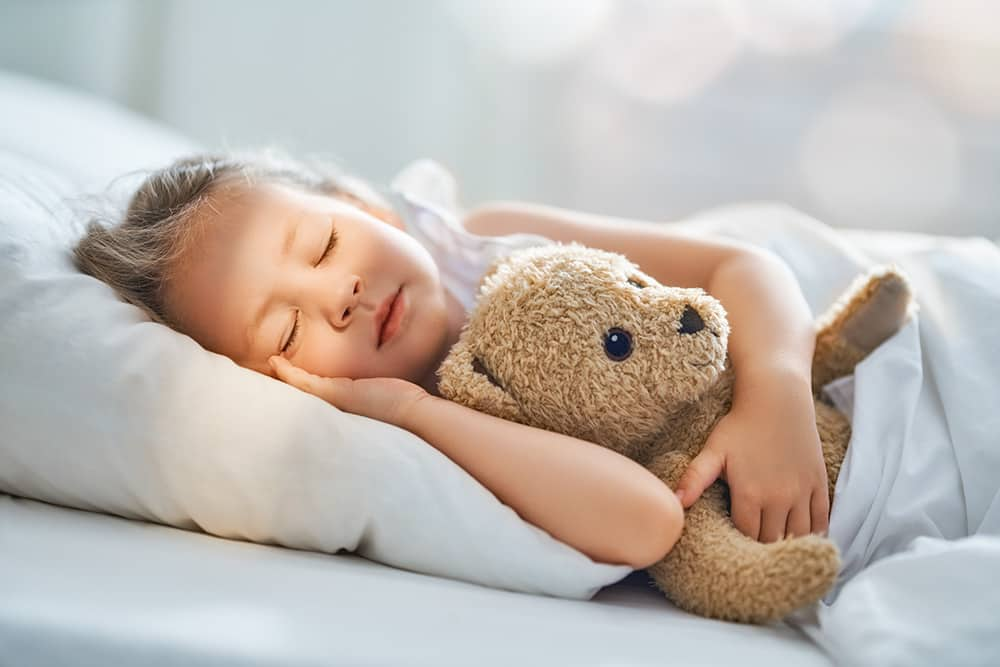Causes of Bruxism
According to the Nemours Foundation's KidHealthy blog, two to three out of 10 children have bruxism, but most will eventually outgrow it. It isn't clear what exactly causes bruxism, although misaligned teeth are one likely suspect. Often a child grinding their teeth in their sleep will do it if they're in pain, whereas other children may do it as a way to relieve anxiety or stress. Teeth-clenching and grinding can also come from hyperactivity, cerebral palsy, or even a reaction to common medications.
Bruxism primarily causes headaches, earaches, facial pain, and jaw problems. If you don't catch it early, your child may chip or break their teeth. It's vital to know whether your child has the condition, even if they still have their "baby" teeth.
Short-Term Effects
The short-term effects of teeth grinding in children are often headaches or pain in or around the ear due to the pressure of clenching the jaw and grinding at night. Wear and tear on the teeth's enamel from grinding can also lead to painful chewing or make the teeth more sensitive to hot and cold. If a child's medication or another medical condition causes the grinding, their physician may need to change or add prescriptions.
Long-Term Effects
If bruxism continues, it can have some long-term effects on children. Significant damage occurs to the teeth if a child keeps clenching and grinding for an extended period. The enamel will not only wear down, but the teeth may chip, flatten or fracture. In instances of prolonged and frequent teeth-grinding, there's a chance of developing temporomandibular joint disorder (TMD). TMD causes further pain in the jaw and can make it difficult for a child to chew or open their mouth completely.
How to Find Out If Your Child Has Bruxism
Determining if your child has bruxism can be tricky because they often don't realize they grind their teeth. Check on them at night to discover whether they make grinding noises while asleep or ask a sibling who shares the room with them.
Is your child particularly worried or angry about anything? If these emotions coincide with the sound of teeth-grinding while they sleep, it's time to pay attention. Children can experience anxiety just like adults. You may need to address the root cause through other medical treatment or stress-relieving interventions, like a warm bath or soothing music before bedtime.
Bruxism can occur when your child is awake and asleep, and your child may report pain in their ears, cheeks, jaw, or neck. Take those reports seriously and make a dentist appointment. Your child's dental professional can determine if the source of facial pain results from bruxism and make recommendations or a treatment plan from there.
How to Stop a Child From Grinding Their Teeth at Night
If you believe your child has bruxism, schedule a dental checkup for a proper diagnosis and further treatment. Your dentist may even order a custom mouthguard for wear at night to prevent grinding and residual soreness. Battery-powered toothbrushes can defend their teeth further by discouraging an overly aggressive brushing style.
Bruxism in children resulting from stress can be treated by helping your child deal with anxiety appropriately. The good news is most kids eventually grow out of teeth grinding. Still, it doesn't hurt to make that dentist appointment first to diagnose the problem, allowing you to treat it the best way you can.
This article is intended to promote understanding of and knowledge about general oral health topics. It is not intended to be a substitute for professional advice, diagnosis or treatment. Always seek the advice of your dentist or other qualified healthcare provider with any questions you may have regarding a medical condition or treatment.
ORAL HEALTH QUIZ
What's behind your smile?
Take our Oral Health assessment to get the most from your oral care routine
ORAL HEALTH QUIZ
What's behind your smile?
Take our Oral Health assessment to get the most from your oral care routine















